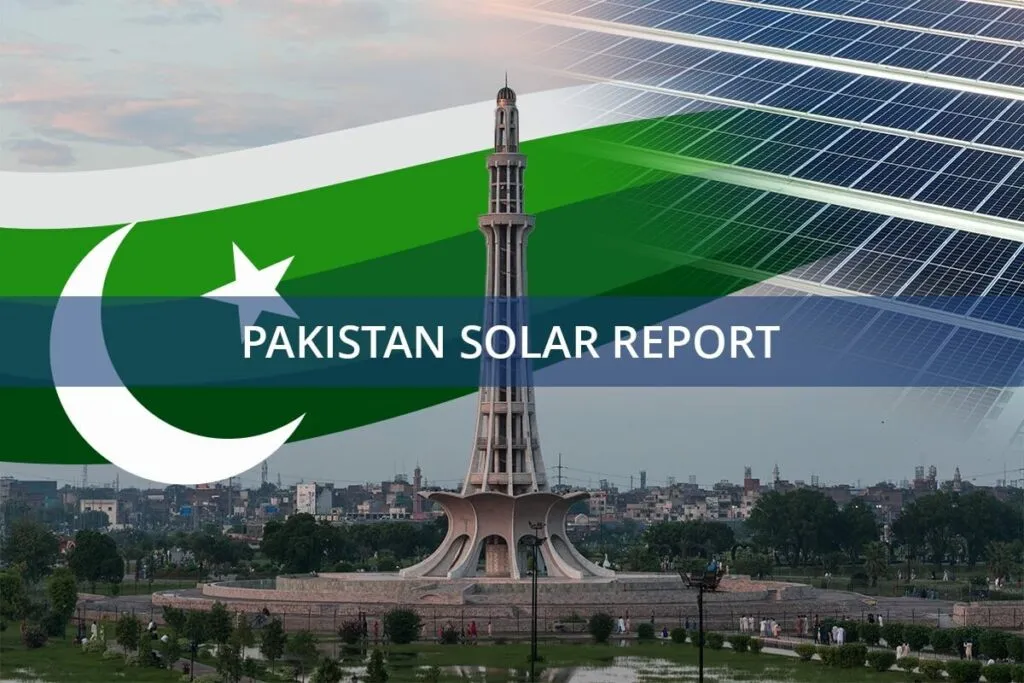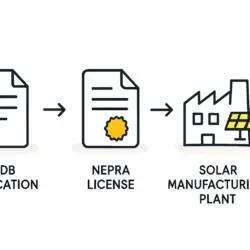Pakistan’s Solar Revolution: Achieving Landmark Capacity with Pakistan solar energy
Pakistan has achieved a significant milestone in its renewable energy sector, with the installation of an estimated 18,000 megawatts (MW) of off-grid and net-metered solar capacity. This remarkable development, marking a staggering increase in a very short period, represents a major stride towards energy independence and sustainability for the country.
A People-Led Surge in Pakistan solar energy Power
The surge in solar capacity is a tale of two powerful trends: off-grid systems and net-metering. Off-grid installations, which have now topped 1,200 MW, are crucial for providing electricity to remote areas without access to the national grid. Simultaneously, net-metered systems have surpassed an impressive 6,000 MW. These systems empower consumers to generate their own electricity and sell excess power back to the grid. This combination has not only boosted the overall energy supply but has also fostered a truly “people-led” movement, allowing communities and individuals to play an active role in shaping the country’s energy landscape.
Policy and Investment Fueling the Pakistan solar energy Boom
The government has played a pivotal role in facilitating this solar boom by introducing policies and incentives that encourage investment in renewable energy. Measures like tax exemptions, subsidies, and streamlined approval processes have created a fertile ground for growth. This supportive environment has attracted significant investment, evidenced by the US$4.1 billion spent on importing solar panels over the last four years. While much of the technology is “China-powered,” the widespread adoption is driven by local demand, creating a dynamic partnership that has accelerated progress.
Abundant Sunlight and Economic Pressures for Pakistan solar energy
One of the key drivers behind the rapid adoption of solar energy in Pakistan is the country’s abundant sunlight, which provides an ideal environment for solar power generation. This natural advantage is compounded by economic realities. The rising cost of traditional energy sources and frequent power shortages have made renewable alternatives not just an environmental choice, but a practical and financially sound one for millions.
A Profound Impact on National Energy Security with Pakistan solar energy
The expansion of solar capacity is having a profound impact on Pakistan’s energy security. Projections indicate that solar, which accounted for less than 1% of grid capacity in 2023, could supply as much as 20% of the country’s electricity by 2026. This radical shift reduces the nation’s reliance on imported fossil fuels, thereby decreasing the burden on foreign exchange reserves. Moreover, the increased use of solar energy helps mitigate the effects of climate change by significantly reducing greenhouse gas emissions.
Creating New Economic Opportunities in Pakistan solar energy
Beyond the environmental benefits, the growth of solar energy has created a wave of new economic opportunities. The expansion of the solar industry has led to the creation of thousands of jobs across the entire value chain. This includes roles in understanding the basics of solar panel manufacturing, sourcing solar panel raw materials, operating complex solar panel manufacturing machines, and finally, in the installation and maintenance of solar systems. This has provided a significant boost to the local economy and contributes to the overall development of the country.
The Road Ahead: Growth and Grid Challenges for Pakistan solar energy
Looking ahead, Pakistan aims to further increase its solar capacity as part of its long-term energy strategy. The government plans to introduce more initiatives to promote renewable energy, including the development of large-scale solar farms. Building these farms requires a deep understanding of the entire solar panel manufacturing process and a clear view of the solar panel manufacturing plant cost breakdown. However, this rapid growth also presents challenges, particularly regarding grid management and the integration of intermittent solar power. The integration of advanced technologies like energy storage systems will be crucial to ensuring grid stability.
A Model for a Sustainable Future with Pakistan solar energy
The success of Pakistan’s solar sector, as highlighted in many a Global Solar Report, serves as a powerful model for other developing countries looking to enhance their energy security and reduce their carbon footprint. As Pakistan continues to expand its renewable energy infrastructure, it is well on its way to achieving a greener and more sustainable future.
To learn more about the intricacies of solar technology and its potential, explore our free e-course on the subject.



